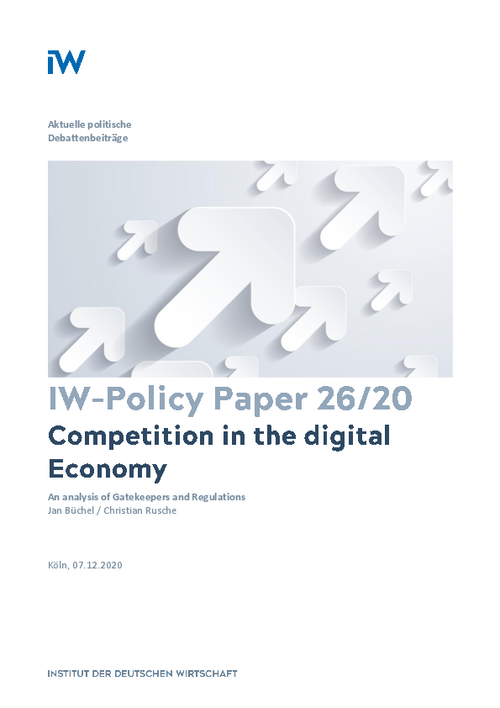The Digital Age saw the rise of several rapidly growing digital platforms with substantial market shares. Europe is a large target market for these globally operating platforms, although the majority of the most successful platforms come from the USA or Asia.

Competition in the Digital Economy: An Analysis of Gatekeepers and Regulations

The Digital Age saw the rise of several rapidly growing digital platforms with substantial market shares. Europe is a large target market for these globally operating platforms, although the majority of the most successful platforms come from the USA or Asia.
In general, platform ecosystems differ from regular market environments: platforms extend to several markets and user groups at the same time and there is an increased degree of dynamics in the allocation of market shares in platform ecosystems, which leads to a pressure to constantly innovate.
Platform ecosystems vary among themselves, not least due to the different types of platform business models or their varying impact on the whole sector. Recent developments have included the emergence of particularly overwhelming platforms, known as “gatekeepers”, that control entire platform ecosystems. A gatekeeper obtains durable and stable significant market power in the market for intermediation services, it has a large impact on the underlying market(s) and it is vital for users from all sides of the platform. In contrast to conventional platforms, for gatekeepers the ability to contest any of the markets is significantly reduced from the perspective of competing platforms, not least due to significant lock-in effects for consumers.
But too tight regulation and pre-emptive intervention without any occasion is not preferable. Rash and untailored action negatively affects the development and growth opportunities for online platforms that do not intend to breach existing competition rules. Indirectly, that harms consumers, by restricting innovation and the availability of products and services. Tailored procedures for individual large online platforms with gatekeeper power on a case-by-case basis are more expedient. Thereby the current regulatory framework is capable of acting and builds on established legal pillars. However, tailored modernisation and adaption, for example in merger control, is helpful for ensuring fair competition. Merger control can be empowered by including data and other synergies between involved enterprises into assessments in order to prevent the formation of gatekeepers.

Competition in the Digital Economy: An Analysis of Gatekeepers and Regulations

More on the topic
The anti‑steering provision of Article 5 (4) of the DMA: a law and economics assessment on the business model of gatekeepers and business users
Data is a success factor for digital platforms and the core of their business model. The rationale behind this is that data allows for improving the matching process between users which creates value for the platform.
IW
Industrial policy at the turn of the times
The current debate on industrial policy vacillates between the extreme positions of an orthodoxy of rejecting state action and a naive belief in the state's ability to control structural change.
IW